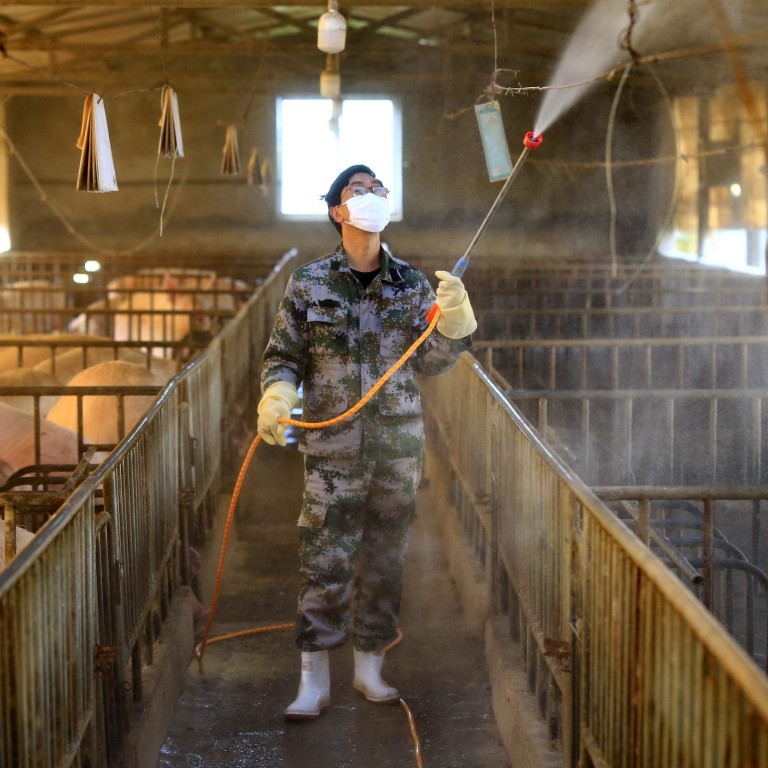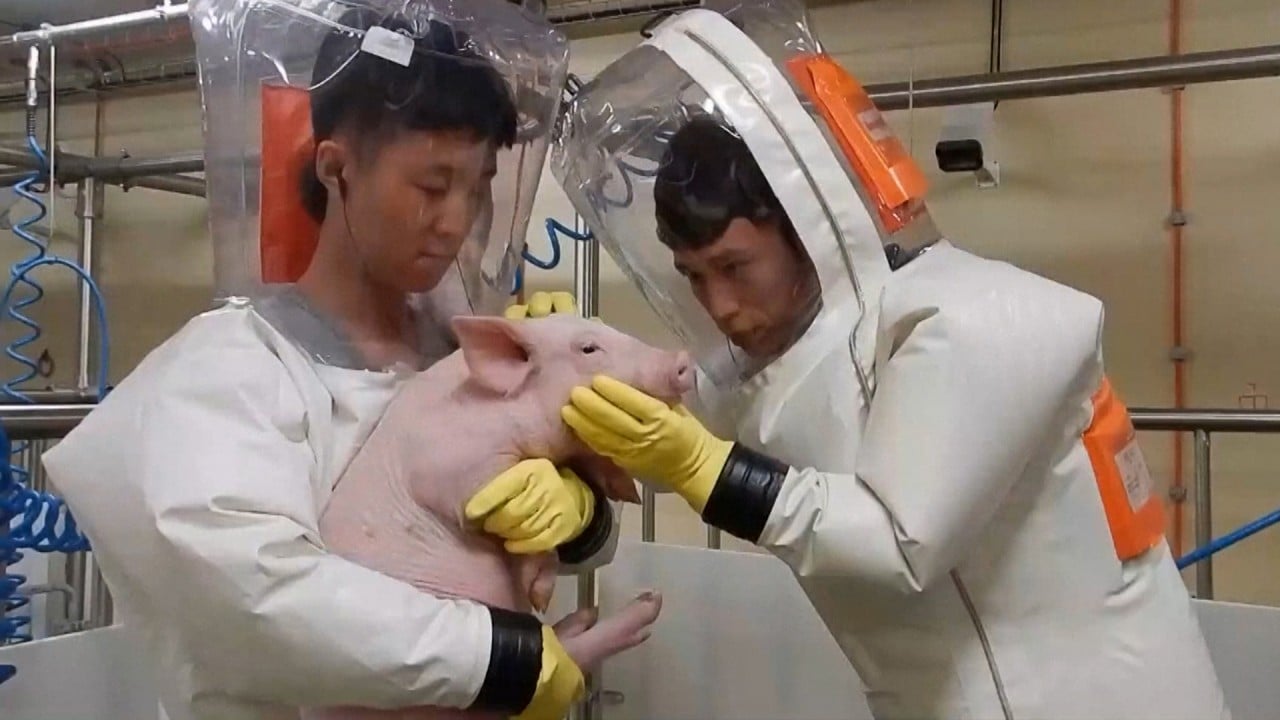
African swine fever still ‘major risk factor’ for China as it bans Malaysian pig imports over outbreak fears
- The deadly African swine fever once killed half of China’s pig population, sending the price of pork skyrocketing, and six small outbreaks have been reported since the start of 2021
- China banned all imports of pigs, boars and related products from Malaysia this week after it detected its first-ever African swine fever outbreaks last month
African swine fever remains a “major risk factor” for China’s pig production after the government this week was forced to step up its efforts to control a resurgence of the disease at home and in neighbouring countries.
“At present, African swine fever is still a major risk factor affecting our country’s pig production,” China’s Ministry of Agricultural and Rural Affairs said this week.
“Until now, neither our country nor any other in the world has approved the use of an African swine fever vaccine. The vaccines being used in production and operations without the approval of strict procedures are all fake vaccines, which pose great safety risks.”
This week, China banned all imports of pigs, boars and related products from Malaysia after it detected its first-ever African swine fever outbreaks last month.
The five outbreaks across Malaysia have killed five boars and 303 pigs, as of February 26, according to the World Organisation for Animal Health, while Vietnam has culled around 2,000 pigs this year following a small flare-up of the disease, its agriculture ministry confirmed.
On Tuesday, China’s agricultural ministry confirmed its latest outbreak after two of the 10 piglets that were being transported in a truck without authorisation in Huaying city in the southwestern Sichuan province – a key pork producing region – had died from the disease.
The risk of the outbreaks has always been there. The prevention and control measures and biosecurity are still the top priority, we cannot let our guard down
The outbreaks, though, are viewed by analysts as likely to be caused by a normal seasonal rebound, meaning the impact on supply is expected to be limited, while the overall trend of declining pig prices on an annual basis has not changed.
“The risk of the outbreaks has always been there. The prevention and control measures and biosecurity are still the top priority, we cannot let our guard down,” said Wang Zuli, an adviser to China’s agriculture ministry and a research fellow with the Chinese Academy of Agricultural Sciences.
Chinese scientists earlier this month also confirmed the emergence of a new strain of African swine fever that is not as harmful but still highly transmissible.

02:02
New type of swine flu found in China has human pandemic potential, researchers say
“The industry is whispering about the impact of the vaccine on viruses and the crackdown on fake vaccines must be related to the recent resurgence of outbreaks,” added Wang.
China’s agricultural ministry on Tuesday urged related institutions to work harder to investigate the new strain, although it did not mention whether the mutations or the resurgence of cases were linked to the use of unlicensed vaccines.
The ministry did not respond to a request for further comment from the South China Morning Post.
“The illegal use of fake vaccines will have a very bad impact on the entire industry, especially the recovery of live pig production capacity, and ultimately the stability of pork supply and pork prices, resulting in a series of butterfly effects.”
If the outbreak impact expands, the pork supply and demand structure could change significantly, so attention needs to be paid to the upwards risk for [consumer price index] growth caused by this
“If the outbreak impact expands, the pork supply and demand structure could change significantly, so attention needs to be paid to the upwards risk for [consumer price index] growth caused by this,” said Chen Xing, chief macroeconomic analyst with the research institute of Zhongtai Securities, on Monday.
China culled 14,000 pigs due to African swine fever in 2020, vice agricultural minister Liu Huanxin confirmed earlier this month, although this is considerably lower than 390,000 in 2019 and 800,000 in 2018.
“The African swine fever epidemic in China has been effectively brought under control in 2020, and the impact of losses has been greatly reduced,” said Liu.
China announced last year that it will introduce stronger restrictions in April on cross-regional transport of live hogs to prevent further transmissions.

